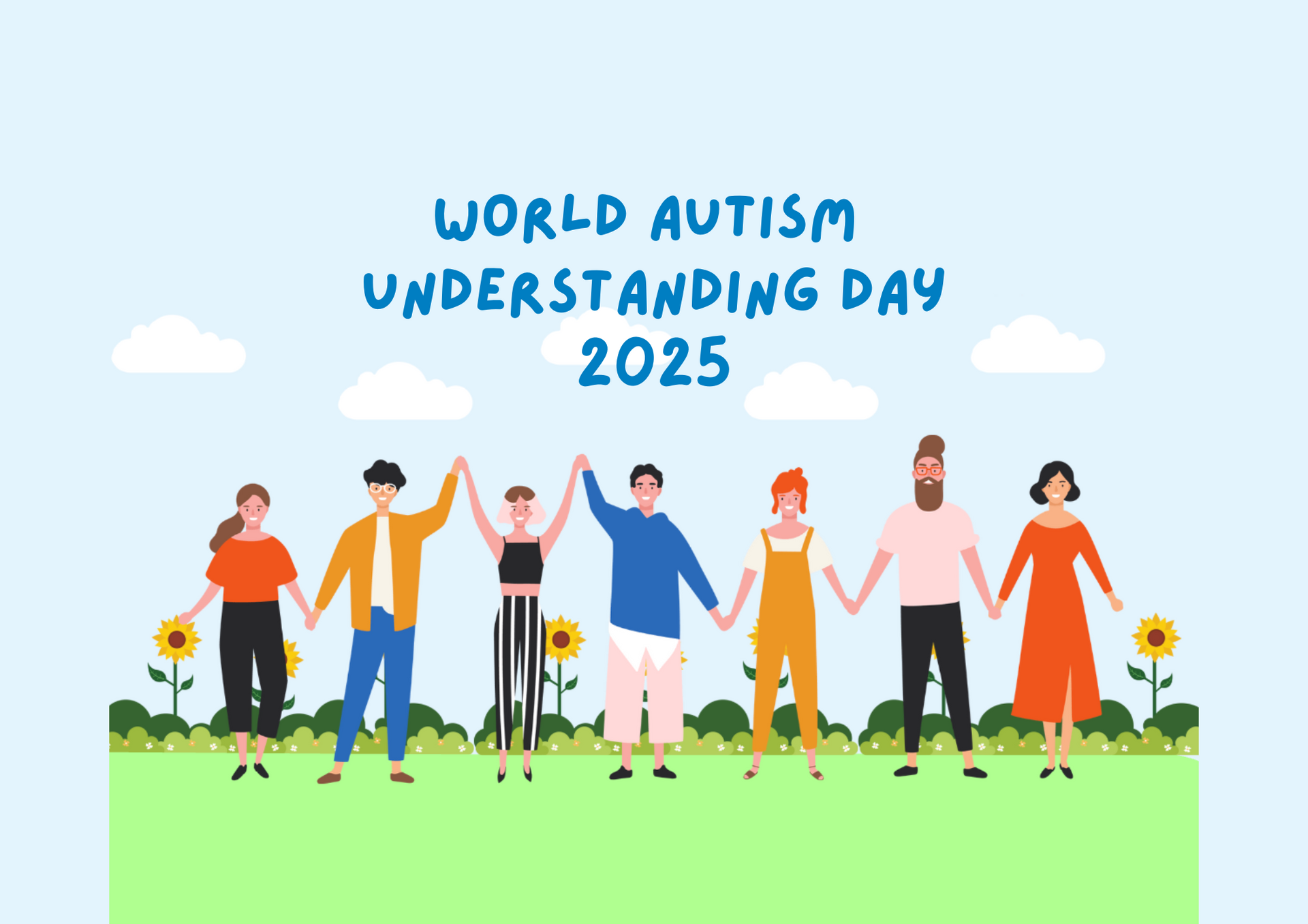Get in touch with us: (03) 8825 3500 / 1300 643 287
Nurturing Relationships Through Movement
November 18, 2024
As we approach International Men’s Day, I've been reflecting on my mental well-being and how I nurture healthy relationships - with others and myself.
For me, movement is key.
I love the feeling of challenging myself; each session is a personal competition, whether an early morning gym workout or a run after work. When I feel good in my body, I feel good in my mind.
But things weren’t always like this. I didn’t enjoy school, and I faced many mental struggles. Then, one day after school, my dad said, “Come on, we’re going to the gym.” I was 14 at the time, and I never imagined that exercise could change me. But it did, and in ways I couldn’t have expected.
Training gave me control over one part of my life at a time when I felt I had none. By focusing on what I could control, exercise opened a whole new world for me - a world of personal development and community.
What is Personal Development?
Personal development involves the intentional act of investing in yourself. It’s a powerful process that can positively transform how we view ourselves and the world around us (UK College of Personal Development, 2024). Personal development activities enable you to grow your skills, knowledge, and confidence.
I regularly take on activities that push me beyond my comfort zone, allowing me to grow.
I train at the gym and go for runs, take ice baths, read books, and I’m learning to cook.
Additionally, I am nurturing my relationship with myself by learning to say no to people and setting healthier boundaries. Lastly, I’m strengthening my relationships with friends and family by spending quality time with them.
How Does Exercise Help Mental Health?
Exercise and mental health go hand in hand. Exercise can boost your mood, concentration and alertness. It can even help give you a positive outlook on life.
Exercise influences the release of brain chemicals that impact your mood. After exercising, you’ll often feel more focused, emotionally stable, and happier due to increased serotonin, which helps regulate mood. Endorphins are also released, contributing to what some runners call a “runner’s high” - a sensation that reduces stress and enhances overall well-being. Regular exercise can also improve sleep quality, supporting better mood management.
Not only does exercise help your relationship with yourself, but it also helps bring people together. An example of this is community sports.
Community Sport and Wellbeing
Humans naturally seek connections that foster a sense of belonging and community.
Community sport is a great example of how a common goal and hobby can unite people. Whether it is the late cold winter nights at training or the Saturday afternoon matches, working towards a goal together strengthens relationships.
Recent statistics have revealed that over 200,000 Australian men felt they didn’t have a single close friend, and 43% of men will experience poor mental health in their lifetime. These stats highlight the importance of community.
Staying connected through exercise and community sports can help lower depression and anxiety, boost self-esteem, and improve overall quality of life (Tasmanian Government Department of Health, 2024).
How did My Relationships Improve?
From being the shy kid at school, struggling with mental health challenges, to becoming a confident young man, exercise has played a key role in improving my relationships - with others and with myself. It pushed me out of my comfort zone and sparked my passion for personal development.
Some of my fondest memories are tied to sport - whether it was winning a grand final with my mates or celebrating their successes. Many of my closest friendships have been formed through community sports and exercise.
Whenever I’m feeling down (which happens to all of us), I reach out to a mate to do something physical together - whether it’s training, surfing, or simply tossing a tennis ball at the beach. Physical activity has been a cornerstone in nurturing my relationships.
Taking care of yourself is one of the strongest things you can do.
By Conor Agnew
Sources
- Tasmanian Government Department of Health. (2024). Why social connections are important for young people. Doh.health.tas.gov.au; Government of Tasmania. https://doh.health.tas.gov.au/healthykids/blog/why_social_connections_are_important_for_young_people#:~:text=Healthy%20social%20connections%20help%20us
- UK College of Personal Development. (2024). What is personal development? UK College of Personal Development. https://ukcpd.co.uk/personal-development/what-is-personal-development/

March 31, 2025
On the 2nd of April, we come together to celebrate World Autism Understanding Day. As many people in our community with Autism, it is important to understand how you can support someone to make them feel comfortable. World Autism Understanding Day is not only about understanding Autism but also taking actions to be a supportive person to those around you. What is Autism? Autism is a lifelong developmental condition that affects how a person thinks, feels, interacts with others, and experiences their environment, according to Autism Spectrum Australia (Aspect). People who have Autism may have different preferences regarding social interactions, a heightened sensory awareness, have different communication preferences compared to neurotypical people, have many strengths, and are honest, loyal, and kind people. This year's World Autism Understanding Day is delivered in partnership with communities to create a supportive and more inclusive society so people with Autism can feel more comfortable navigating the world. By creating more understanding about Autism, we can challenge myths and misconceptions regarding Autism to create meaningful changes so Autistic people can have the same opportunities and support as everyone else. Common Myths and Misconceptions Autism only affects males - Autism can affect any gender. Whilst males are most commonly diagnosed, females are often diagnosed at a later point in life. People with Autism lack empathy – Autistic people do experience all emotions including empathy; however, they may show and regulate empathy differently compared to neurotypical people. Autistic people are anti-social – Just like everyone, Autistic people still desire social connections and want to create meaningful relationships. Whilst sometimes social interactions and situations can be challenging for Autistic people, this does not mean they do not want to socialise and create connections. Ways to support people with Autism It is important to understand that people with Autism may experience the world differently compared to neurotypical people. By showing you care for and are willing to support Autistic people, you can help them to feel more comfortable within society and themselves. Encourage inclusivity in group settings – Make sure to make invites to group activities clear to Autistic people. Take some time to explain to them what is going to happen to make sure they feel comfortable. Do not force any social interactions but instead help them feel at ease within any group setting. Keep things clear and simple – Sometimes people on the Autism spectrum take things to heart or have difficulty picking up on social cues. Keep your communication clear and your language direct, and do not be disheartened if they are repeating things you have said to them, they are just trying to make sure that they understood what you said correctly. Respect personal space – Individuals on the autism spectrum may have different preferences regarding personal space and touch. It is important to communicate and ask people with Autism their preferences and always ask for consent before initiating any physical contact. Make sure to be mindful of any physical boundaries and do not be disheartened if they say no, they’ll appreciate you asking and listening to what their preferences are. Watch out for overwhelming situations – People on the Autism spectrum can get overwhelmed by sights, sounds, and smells, especially within a busy or large place due to their heightened sensory awareness. Be sure to look out for this, and if this happens try to move them to somewhere less overwhelming so they can have some time to process their surroundings. Create a safe space for them where they feel comfortable talking about their desires and needs, so they can be their authentic selves. Adjustments can include dimming lights and reducing background noise, which can help people with Autism to feel safe and secure again. With a better understanding of what Autism is and how to support within your community, you can help to make them feel more comfortable and have the same opportunities as neurotypical people. Importantly, while we continue to celebrate World Autism Understanding Day, make sure to continue to understand and support individuals with autism every day of the year to make a more inclusive and comfortable world. By Holly Johns

March 7, 2025
In a world where life is increasingly becoming more challenging, it is more important now than ever to make sure you are being supportive to your partner. When you are being a supportive partner, you are able to grow, learn and become stronger together. There are many different ways you can show support to your partner, and tailor the support you give them to their needs. Listen to your partner As simple as it seems, listening effectively to the needs and wants of your partner can help you to be supportive of them. You are able to tailor your actions to them, providing a more accurate response to their desires. To show you are listening to them and giving your full attention, make sure to stop any distracting tasks that may interfere with being fully present in the moment. Offer encouraging words Showing support to your partner by encouraging them with words provides a sense of belonging. A simple ‘you have got this’ can make a world of difference, allowing your partner to feel empowered. Encourage new challenges and dreams It is natural as time goes on and you spend more time together, the desires and needs of your partner changes. It is important to acknowledge that this is perfectly fine, and to give your partner plenty of support and advice while they navigate new challenges and dreams in their lives. Spend quality time together Whilst life can get busy, it is always important to ensure you and your partner spend quality time together, away from the stressors of life. Show initiative and be the one to arrange a dinner, movie night, or even a small getaway to show your support and love for one another. Be empathetic Being able to understand your partner's emotions and feelings will help you to be able to support them more beneficially. Let them vent their feelings to you and show empathy to them, so they know you are truly there for them in tough moments. Be willing to communicate Communicating how you feel shows respect and trust for your partner. Communication builds an open and honest relationship, so your partner never has to second-guess themselves. Express gratitude It is important to vocalise what you love and appreciate about your partner. By showing you are grateful for their actions and help, this allows them to feel supported and valued within the relationship. Apologise It is important to acknowledge when you are in the wrong, even though sometimes it may not always be easy to do this. By apologising, it lets your partner know that you are actively reflecting on your actions to becoming a better and more supportive person. It is important to be supportive to your partner to increase overall satisfaction in your relationship. By fostering a supportive environment in your relationship, this helps you and your partner to build trust and respect – two very important aspects in a relationship. Support makes people feel valued and safe, which is desirable for so many of us. Being a supportive partner shows you value your relationship, but most importantly, shows that you care. By Holly Johns
Get support
Information & resources
Get involved

The Mental Health Foundation Australia acknowledges the traditional owners of country throughout Australia and their continuing connection to land, sea and community. We pay our respects to them and their cultures and to their elders both past and present.

© 2025
All Rights Reserved | Mental Health Foundation Australia | Registered PBI with ACNC. Charity ABN 81 006 003 363

